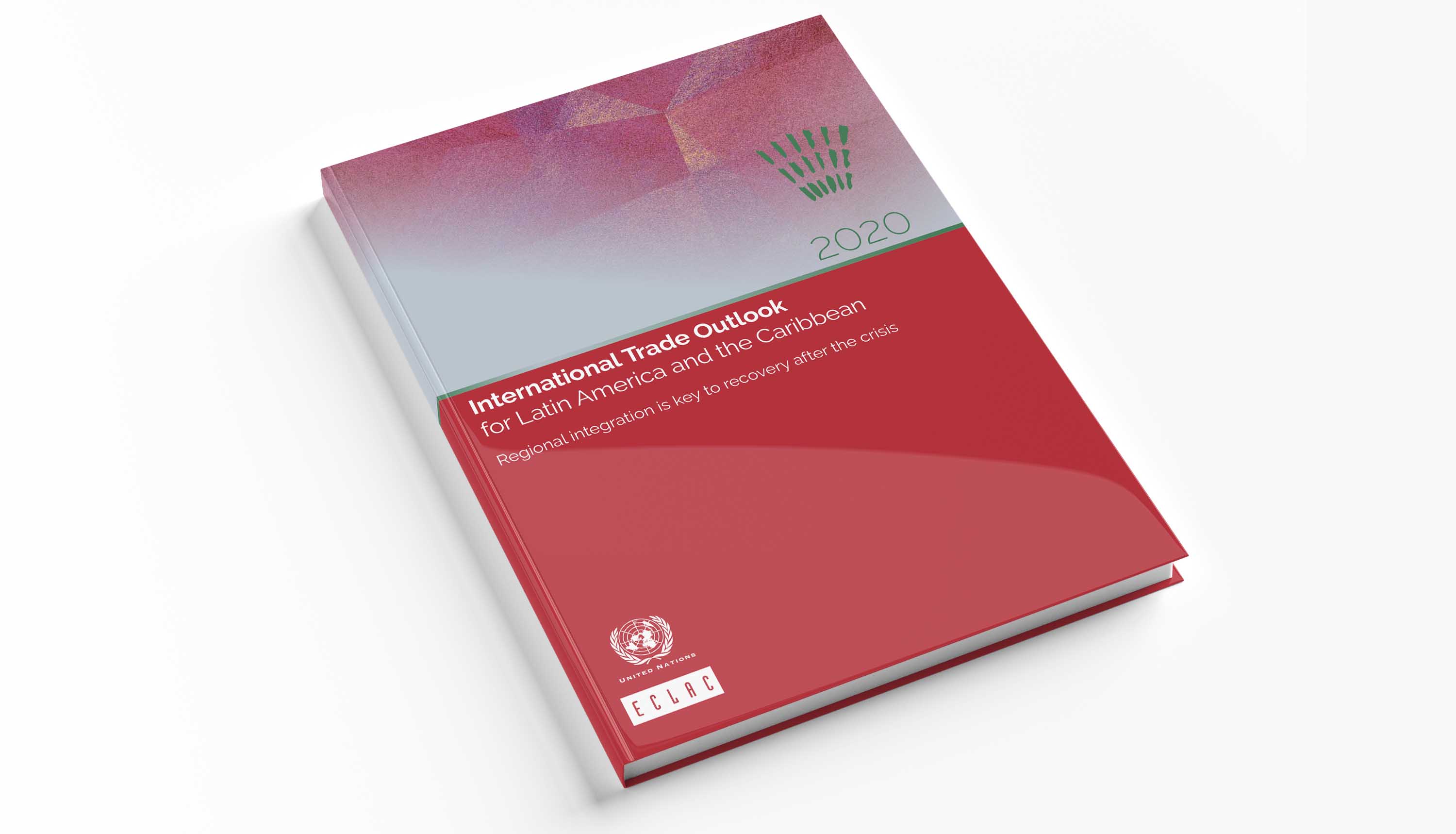Latin America and the Caribbean’s Foreign Trade Marks its Worst Performance since the Global Financial Crisis Due to the Pandemic
Work area(s)
In a new annual report, ECLAC estimates that the value of regional exports fell -13% in 2020 and calls for deepening regional integration to drive the recovery, as well as to reduce gender inequalities in trade.

Latin America and the Caribbean’s foreign trade in 2020 had its worst performance since the global financial crisis of 2008-2009, above all because of the economic crisis prompted by the global COVID-19 pandemic and the restrictions imposed by governments to stop its spread. According to new projections by ECLAC, it is estimated that the value of regional exports dropped -13% in 2020 while imports shrank by -20%, the United Nations organization indicated today upon unveiling a new edition of its flagship annual report International Trade Outlook for Latin America and the Caribbean 2020.
The Executive Secretary of the Economic Commission for Latin America and the Caribbean (ECLAC), Alicia Bárcena, held a press conference to present the document, which indicates that this contraction in the value of exports is smaller than what was forecast in early August of last year (-23%), when the institution released its Special Report COVID-19 No. 6, because at that time the rebound in demand among the region’s main trading partners, and China in particular, was not yet visible.
“It is necessary to deepen integration to drive the regional recovery,” Alicia Bárcena stated during the presentation of the report. “The region has been ’disintegrating’ in terms of trade and production since the middle of the last decade, coinciding with its lowest growth in seven decades. This is very worrisome because intraregional trade is the most conducive to productive diversification, the internationalization of companies (especially MSMEs) and gender equality,” she added.
ECLAC insists that, in order to reverse this disintegration, it is important to move ahead on a shared agenda regarding trade facilitation, transportation and logistics infrastructure, and digital cooperation to generate regional synergies in key dynamic sectors, the senior United Nations official indicated.
“It is urgently necessary to reinvigorate regional integration to support the post-pandemic recovery,” Bárcena emphasized. “Greater convergence is needed between distinct integration mechanisms in order to overcome the fragmentation of the regional market and to support a sustainable and inclusive recovery. It is also critical to foster the participation of female workers and entrepreneurs in dynamic sectors and in regional productive chains, for a transformative recovery with gender equality and sustainability.”
According to the report, the COVID-19 pandemic has intensified various tendencies that were already developing in global trade, including trade and technological tensions between the United States and China; growing economic nationalism and conflicts in trade relations; the weakening of multilateral cooperation; the digitalization of production and trade; and the trend towards regionalizing production through nearshoring (locating suppliers in countries that are closer to the target market) and reshoring (relocating strategic productive and technological processes to the country of origin).
The document indicates that the recovery in the prices for commodities and the increase in demand from the United States, China and Europe have created the conditions for an incipient recovery in regional exports since the second half of 2020. However, that improvement is subject to considerable uncertainty, due to the renewed outbreaks that have occurred in numerous countries as well as slow access to vaccination.
ECLAC’s 2020 estimates by subregion indicate that Central America exhibited the smallest decline in its exports, notching -2%. This is due largely to the fact that trade among Central American countries, which represents around 25% of the subregion’s exports, is concentrated in essential products, such as agro-food and pharmaceutical products. Meanwhile, South American and Mexican trade is seen having contracted by -13% each (similar to the regional average), and that of the Caribbean by -16%.
For the first time, the report offers a special chapter on gender inequalities in international trade. It underscores that productive and trade specialization combined with gender segregation in the labor market conditions the quantity and type of women’s employment in international trade. In 2018, according to available information on ten South American countries and Mexico, one out of every ten employed women worked in sectors associated with exports. In addition, women are concentrated in just a few sectors (the textile and garment industry and in some services, such as tourism), while men are distributed across all export-related sectors.
In addition, due to COVID-19, the border closures, the restrictions on movement and the drop in trade have an impact on female workers and businesswomen linked to tourism (at a regional level and especially in the Caribbean) and the for-export textile and garment industry (particularly in Central America and Mexico).
As a result, ECLAC stresses that it is necessary to strengthen regional integration and productive complementarity, ensuring women’s participation in sectors that are strategic for structural change with gender equality in a post-pandemic world. It is also necessary to analyze the distributive effects of trade policies from a gender perspective, ensure regulatory coherence between trade rules and commitments to women’s human rights (CEDAW, the Beijing Platform and Regional Gender Agenda), incorporate gender provisions into trade agreements and disciplines, and guarantee women’s access to credit, technology and employment in dynamic sectors and support the internationalization of women-led businesses.
Attachment(s)
Related content
Perspectivas del Comercio Internacional de América Latina y el Caribe 2020
Presentación de Alicia Bárcena, Secretaria Ejecutiva de la CEPAL.
Related link(s)
Country(ies)
- Latin America and the Caribbean
Contact
Public Information Unit
- prensa@cepal.org
- (56 2) 2210 2040
